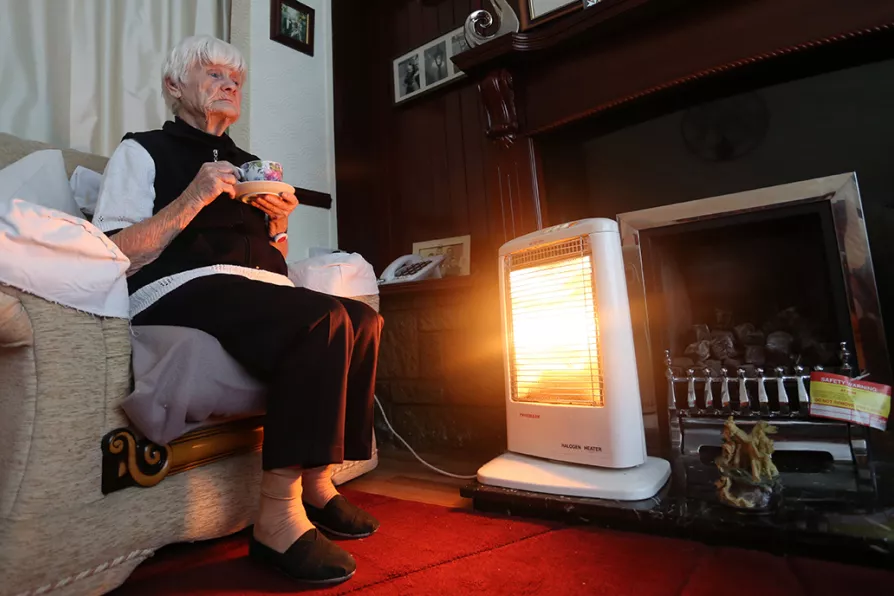Error message
An error occurred while searching, try again later.
 An elderly lady holding a cup of tea at home in Liverpool with her electric fire on
An elderly lady holding a cup of tea at home in Liverpool with her electric fire on
THE Warm Homes Plan should be judged on how much it cuts fuel poverty rather than focusing on technical targets, campaigners urged the government yesterday.
The £13.2 billion scheme aims to improve energy efficiency in five million homes by 2030.
End Fuel Poverty Coalition has written to energy minister Miatta Fahnbulleh, outlining key recommendations to ensure it delivers for those most in need.
Campaigners suggest that the scheme’s success should not be judged by how many insulation measures are installed, or homes moved to EPC band C, but by how far it goes in ending fuel poverty.
About five million households in Britain are trapped deep fuel poverty, according to a University of York study.
Simon Francis, co-ordinator of the End Fuel Poverty Coalition (EFPC), said: “Cold homes cause suffering, cost lives and drive up costs for the NHS.
“The Warm Homes Plan can be the solution — but only if it’s designed around the real needs of people, not just technical targets.”
The coalition suggests a “warmth-first” approach, treating warm, safe housing as a basic right.
It recommends that the programme include a “warm-home guarantee” that measures real-world impact, tracking comfort and bill savings.
EFPC warns ministers against diverting Warm Homes Plan money into existing schemes, or using it to subsidise electricity prices.
The government should fund face-to-face advice services to help residents access relevant benefits, energy support and legal protections, it suggested.
The Department for Energy Security and Net Zero said: “The energy shocks of recent years have shown the urgent need to upgrade British homes.
“Our Warm Homes Plan will make them cheaper and cleaner to run, rolling out measures from new insulation to solar and heat pumps.”










